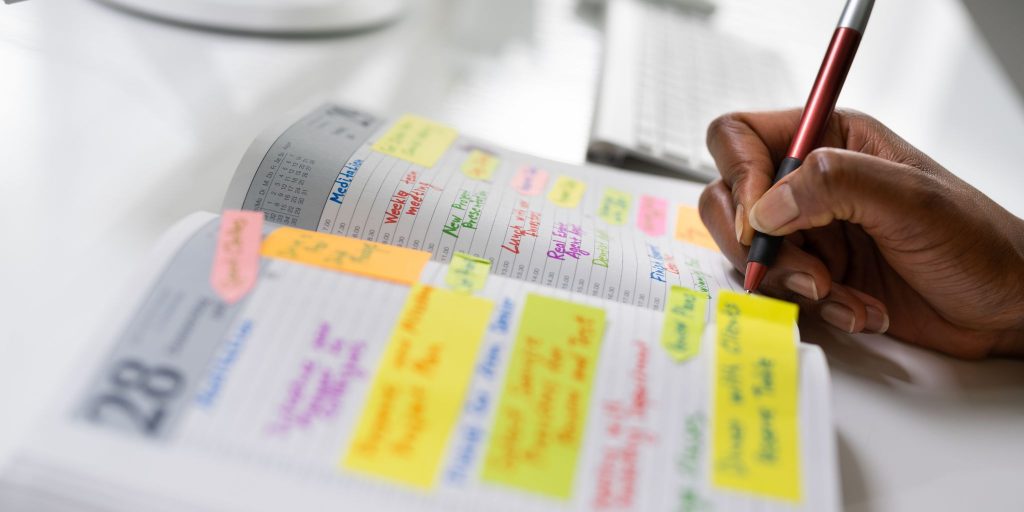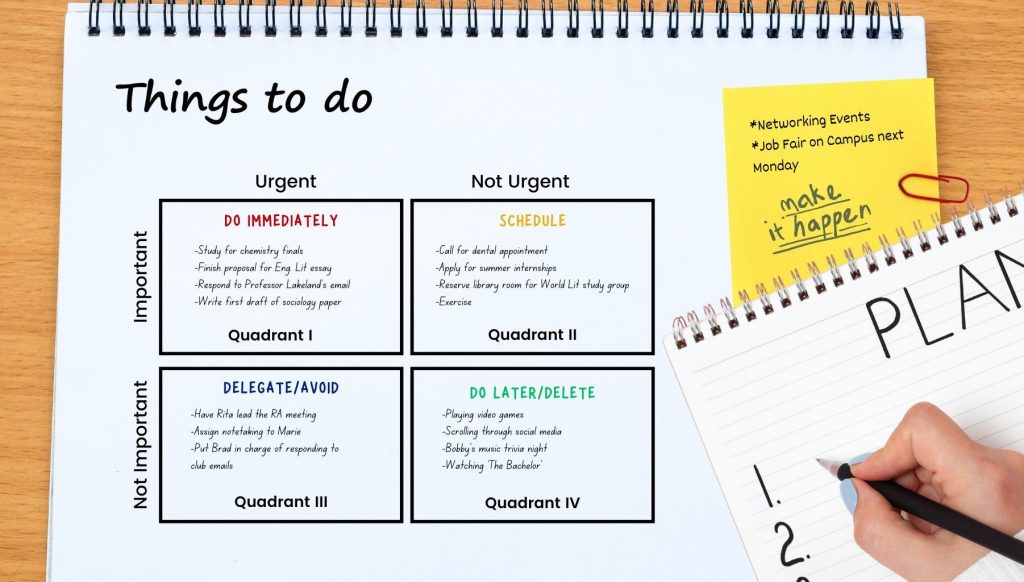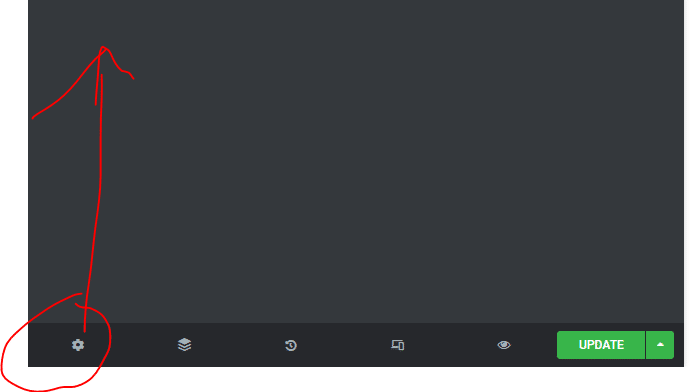
William Penn once said, “Time is what we want most, but what we use worst.” In fact, 87% of students acknowledge that the ability to manage time professionally would lead them to higher grades, whereas 88% are eager to hone their time management skills for academic success.
If you also find it challenging to cope with everything, being head over heels in school or college life, we offer you a helping hand. It’s a comprehensive guide with time management tips from experts and other students like you. So, grab it and hold on tight!
How to Improve Time Management as a Busy Student
Better time management is a skill to master, not a one-time hack to apply whenever needed. The following tactics will help you become skilled in time management. No matter how occupied you are, you’ll manage your time like a pro after learning from experts.
Plan Your Day from Start to Finish
You have only 24 hours in a day. It’s not that much, considering the fact that you dedicate at least seven hours to sleep. After subtracting seven from 24, you are left with merely 17. It would help if you mapped routines for every hour precisely, from morning to evening. For example, your morning routine may look like this:
- 5:00 a.m. Wake up, brush teeth, drink warm water
- 5:30 a.m. Meditate or exercise
- 6:00 a.m. Shower
- 6:30 a.m. Have breakfast
- 7:10 a.m. Pack my bag
- 7:30 a.m. Commute to campus
And so on. Use a daily planner or calendar app to make scheduling easier. Today, nearly two-thirds of students (30.3%) turn to digital calendars to organize their days. What about you?

Add Breaks and Vacations to Your Schedule
Effective time management for active students shouldn’t involve only tasks and errands. It must also embrace planning time for relaxation.
Just look at this: 59.9% of university students experience academic burnout. If you don’t want to boost these statistics and maintain focus instead, schedule short breaks to rest and “recharge your batteries” between study sessions. According to researchers, you need 20 to 30 minutes of breaktime for every two hours of focused work.
Remember to prepare for your winter holidays and summer activities. Pierce Hogan, CEO at Varied Lands, advises busy students to plan long breaks at least half a year before the actual date. He says, “Planning your student vacation in advance is the best way to avoid last-minute stress and take care of all arrangements. For instance, you may want to unplug from technologies in an X-day digital detox to disconnect from the virtual world and reconnect with yourself. Alternatively, it may be a trip to unite with nature and spend quality time outdoors.”
Fill in the Unexpected Gaps
Are you standing in a line for too long or sitting in your car caught in a traffic jam while commuting to college?
“Every second of your time counts. It’s crucial to make wise use of it and fill unforeseen time gaps with important things,” recommends Tim White, Founder of milepro. He suggests, “Whenever stuck in queues, expecting appointments, or waiting for transport while traveling, study in quick bits (skim books for a seminar or read up for an exam) to never miss a chance of using this time effectively.”
It is a simple yet time-saving strategy that turns idle moments into opportunities for studying. So, why not make productive use of otherwise wasted time?
Define Your Priorities
Task prioritization is one of the obligatory time management techniques to try if you’re a busy or working student. You must identify the most and the least significant tasks and allocate time accordingly. The Eisenhower matrix is the best tool to do that. It allows you to prioritize tasks by urgency and importance:
Quadrant I: Urgent and important (Do immediately)
For example: Complete a home assignment due tomorrow or participate in a college sports activity planned for today.
Quadrant II: Important, but not urgent (Schedule)
For example: Research and start working on a term paper due in two weeks or study Latin for an upcoming exam in a month.
Quadrant III: Urgent, but not important (Delegate)
For example: Reserve a study room or a meeting space on campus, handle administrative tasks when managing a student newspaper, or print documents for a group project.
Quadrant IV: Not urgent and not important (Do later/delete)
For example: Browse social media mindlessly, play video games, or engage in activities with little to no personal benefit.

Set Deadlines and Use Time-Trackers
Of course, you already have deadlines at work and your university. But here, we’ll discuss personal deadlines. They can help you become more organized and track progress by visualizing every task in a timeline.
Suppose you struggle to manage your time as a college student and have a research paper project looming on your educational horizon. Break it down into smaller chunks and set intermediate deadlines for each milestone in your project up to the final submission date. For example:
Select the topic: The deadline is tomorrow.
Research the topic: The deadline is one week from today.
Create an outline: The deadline is two weeks from today.
Write an introduction: The deadline is three weeks from today.
Complete the first draft: The deadline is six weeks from today.
Review and edit the paper: The deadline is seven weeks from today.
Submit the final paper: The deadline is the end of the semester.
Now, you need to track time on each task and set reminders never to miss due dates. That’s when time-tracking tools can help you out. Choose from the following list:
- Aika
- Reclaim.ai
- HourStack
- Toggl Track
- MyStudyTracker
- TimeCamp
Switch from Multitasking to Single-Tasking
Are you trying to learn chemistry and cook dinner, all while watching your favorite movie? Forget about it, and never trick yourself into this trap.
Actually, multitasking is a dreadful assassin of your productive day. While only 2.5% of people have a knack for multitasking, this habit kills 40% of productivity. Your brain doesn’t have enough power to multitask. It just switches tasks as if “juggling” them. It also affects your ability to focus and memorize new things.
Rather than doing several assignments simultaneously, set a goal to complete one task at a time. Experiment with various single-tasking techniques to find what works best for you:
- The Pomodoro Technique: Divide work into intervals (typically, 25 minutes each) and add short breaks between them (five minutes each).
- Mindful single-tasking: Practice mindfulness and fully immerse yourself in a specific activity.
- Two-minute rule: If you can finish a task in two minutes or less, don’t put it off and do it instantly.
- Task batching: Categorize tasks into groups and complete them in batches during allocated time blocks.
Limit Distractions
Know your enemy that prevents you from managing your time as a student. It’s a distraction. While studying, an average student spends five out of 15 minutes in a state of distraction. Not to mention that every 15 minutes, one checks the phone and gets distracted even more. Distractions can take any form:
- General noise
- Other students’ conversations
- Hunger or thirst
- Family and friends
- TV
- Music
- Social media
- Phone alerts, etc.
Picture this. You’re peacefully doing homework in your dorm room. Suddenly, your college roommate breaks in and turns on the portable Bluetooth speaker at its maximum volume, making it impossible for you to concentrate.
Here’s another example: You’re taking an online class, and your phone starts buzzing with notifications every other minute. You check those and then decide to scroll Instagram or TikTok, just a few seconds, and voila—an hour is gone!
Grant Aldrich, Founder of Preppy, knows an excellent technique for fighting distractions like these. He says, “Busy students can minimize distractions and manage time more effectively by setting the do-not-disturb mode on everything when they are engaged in studies. They can do it digitally and physically: switching it on the phone and hanging the do-not-disturb sign on the room’s door.”
Stay Flexible
Occasionally, you may notice that your plans are falling flat, and you have to adjust them on the go. That is why you must be adaptable to unexpected changes in your schedule.
It’s a particularly invaluable time management skill for college graduates preparing to step into a new environment (work). If you’re a graduate student, flexibility guarantees a smoother transition from college to work life so that you can get used to a different schedule without stress or hiccups.
It’s also a must-use tactic for students who study and work, whether part-time or full-time. Under these circumstances, it’s advisable to build resilience and develop coping mechanisms to face unpredictable challenges, maintain a positive attitude (view challenging situations as opportunities for growth), and focus on finding solutions rather than grumbling about problems.
Learn from Others
Learn from Other Busy Students
You can browse YouTube and find lots of videos with student time management tips. For example, learn from Paloma Cordova, a student pursuing a bachelor’s degree and a full-time artist with a hectic schedule. In her YouTube video, she explains how to combine work and study.
Or take Reddit, another popular online community among students worldwide. Try searching “How do you manage time as a busy student?” on Reddit. You’ll get advice from other students sharing their time management strategies in subreddits like r/college or r/GetStudying.
Learn from Books Written by Busy People
Books written by professionals can give you firsthand knowledge about managing time as a busy person. The best time management books for overloaded students are:
- Counterproductive by Melissa Gregg
- Make Time by Jake Knapp and John Zeratsky
- Getting Things Done by David Allen
- Time Management Secrets for College Students by Dennis Stemmle
- The Time Cleanse by Steven Griffith
- Off the Clock by Laura Vanderkam
- Singletasking by Devora Zack
- The Time Diet by Emily Schwartz
Their perspective can resonate with your experience and inspire and motivate you to take control of your time and productivity.

One Last Word Before You Go!
Remember to add a diploma-framing task to your calendar if you’re a college or university graduate. Check with your college or university when it holds graduations (usually, it’s May), go to your calendar, and create a new task to frame your diploma after graduation. It deserves a special place on your wall. You worked really hard for it. Don’t shy away from showing it off!









